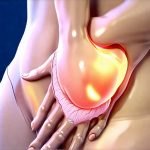Cystitis, an inflammation of the bladder, is a frustratingly common condition affecting millions worldwide, disproportionately women due to anatomical differences. While unpleasant at any time, many individuals with cystitis report that their symptoms seem significantly worse at night, disrupting sleep and creating considerable distress. This isn’t simply a matter of anxiety or imagining things; there are several physiological and lifestyle factors that contribute to this nighttime exacerbation. Understanding these reasons can empower patients to manage their condition more effectively and seek appropriate support from healthcare professionals.
The experience of cystitis often involves frequent, urgent need to urinate, a burning sensation during urination (dysuria), lower abdominal discomfort, and sometimes even blood in the urine. While daytime symptoms are certainly disruptive, they’re typically interwoven with activity, distraction, and the ability to readily access bathroom facilities. Nighttime, however, presents a different scenario—one characterized by stillness, reduced distractions, and often, difficulty getting out of bed quickly, amplifying the discomfort and anxiety associated with bladder urgency. This article will delve into the reasons why cystitis symptoms frequently feel more intense after dark, offering insights into both physiological processes and everyday habits that play a role.
Physiological Changes Overnight
The human body undergoes numerous changes during sleep, many of which directly impact bladder function and symptom perception. One significant factor is hormonal fluctuation. During the day, levels of antidiuretic hormone (ADH) are relatively stable, helping to regulate fluid balance. However, at night, ADH secretion increases. This normally conserves fluids, reducing urine production while we sleep – a clever mechanism designed to avoid waking up multiple times for bathroom trips. In individuals with cystitis, even the relatively small amount of urine produced overnight can trigger urgent and painful sensations due to the inflamed bladder wall. It’s not necessarily more urine, but rather, the concentrated presence of even normal amounts feels more noticeable against an already sensitive background.
Furthermore, our perception of pain changes while we are asleep or trying to sleep. During wakeful hours, the brain actively filters and processes sensory information. However, during sleep, this filtering mechanism diminishes. This means that signals from the bladder – even relatively minor ones – are less likely to be suppressed and more likely to reach conscious awareness, leading to a heightened perception of discomfort. Essentially, what might be manageable background irritation during the day becomes an insistent demand for attention at night.
Finally, body position can play a role. Lying down increases pressure on the bladder from surrounding organs. While this isn’t inherently problematic in a healthy bladder, it amplifies the sensation of fullness and urgency in one already inflamed and irritated by cystitis. This physical pressure adds to the overall discomfort, making nighttime symptoms feel more pronounced.
The Role of Reduced Distraction
During the day, we are often preoccupied with work, social interactions, or other activities that serve as effective distractions from bodily sensations. These distractions help us cope with mild discomfort and minimize its impact on our daily lives. However, when we lie down to sleep, these distractions disappear. The quiet stillness of night allows us to focus almost entirely on internal sensations – including the uncomfortable signals from an inflamed bladder. This increased attention can amplify the perceived intensity of symptoms.
- It’s a common psychological phenomenon: pain is often more noticeable when there are fewer external stimuli competing for our attention.
- Consider a minor ache that you barely notice during a busy workday, but which becomes intensely bothersome as soon as you sit down to relax in the evening. This illustrates how reduced distraction can heighten symptom perception.
This isn’t about “overthinking” or being overly sensitive; it’s a natural consequence of how our brains process sensory information. The lack of external stimulation simply allows us to become more aware of internal sensations, making nighttime cystitis symptoms feel significantly worse than daytime ones. It’s important to remember that the physical sensation isn’t necessarily stronger at night—it’s our awareness of it that is.
Fluid Intake and Timing
Many people make the understandable mistake of reducing fluid intake drastically when experiencing cystitis, hoping to minimize trips to the bathroom. While staying adequately hydrated is crucial for overall health – and even bladder health – when you drink fluids can significantly impact nighttime symptoms. Consuming large amounts of liquids close to bedtime will inevitably lead to increased urine production while you sleep, exacerbating urgency and discomfort.
- Avoid caffeine and alcohol in the evening: these substances are diuretics, meaning they increase urine production.
- Spread fluid intake evenly throughout the day, rather than consuming most of your fluids at once.
- Aim to reduce fluid consumption a few hours before bedtime.
However, restricting fluids too much can actually concentrate the urine, making it more irritating to the bladder wall and potentially worsening symptoms in the long run. A balanced approach is key: adequate hydration during the day, coupled with mindful timing of fluid intake around bedtime. The goal isn’t to eliminate urination at night entirely—that’s unrealistic and unhealthy—but rather to minimize frequency and volume enough to allow for undisturbed sleep.
Bladder Capacity and Function
A healthy bladder can comfortably hold a significant amount of urine – typically between 400-500 milliliters (around 13-17 ounces). However, in individuals with cystitis, the inflamed bladder wall may become more sensitive and less elastic, reducing its functional capacity. This means that even relatively small amounts of urine can trigger a sense of urgency. Furthermore, urgency itself can sometimes lead to involuntary contractions of the bladder muscles, further intensifying the sensation and making it difficult to delay urination.
- The feeling of needing to rush to the bathroom can become overwhelming, especially when combined with the reduced distractions of nighttime.
- Chronic cystitis can sometimes lead to changes in bladder habits over time, potentially exacerbating these issues.
It’s important to note that this isn’t a matter of simply having a “weak” bladder; it’s a consequence of inflammation and altered nerve function within the bladder itself. This reduced capacity and increased sensitivity contribute significantly to the nighttime symptom experience, as even small amounts of urine can feel overwhelming and disruptive.
It’s crucial to remember that this article provides general information about cystitis and its potential causes for nighttime exacerbation. It’s not intended to be a substitute for professional medical advice, diagnosis, or treatment. If you are experiencing symptoms of cystitis, it is essential to consult with a healthcare provider to determine the underlying cause and develop an appropriate management plan tailored to your individual needs.





















